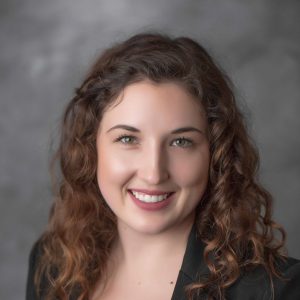Providing Healthcare to the Whole Person: Emotionally, Mentally, Physically, and Spiritually
by Katherine Hartman
When I entered medical school, I had the expectation of pursuing a career in Emergency Medicine (EM). My goals have always been focused on providing healthcare to the whole person: emotionally, mentally, physically, and spiritually. Based on my experiences volunteering within an emergency department, I knew that this type of care was difficult to come by given the nature of the practice, but I believed there was a way to do this in EM. Due to this interest, I took part in the EM elective that was offered my first semester and quickly realized this was not the field for me. I was able to understand that within the medical system, EM was designed with a main purpose. This purpose is to stabilize those in emergency situations and have a plan for them to follow up with their primary care. Yet, given the shortage of physicians in primary care, many people are without this crucial later step in the medical system. Once I realized this, I redirected my energy and focused my goals on where I can use it to benefit the most people possible: Family Medicine.
Since my career plans changed, I became interested in The Integrated Medical School and Family Medicine Residency Program (TIP). One of the benefits this program has to offer is the ability to begin building relationships with patients in the clinic as a fourth year student. My goals as a practicing physician cannot be completed without a strong patient-physician bond. Through the continuity of clinic time, TIPs allows the opportunity to refine these skills prior to beginning residency. The relationships I would have the opportunity to build during fourth year can then continue throughout residency. Overall, my plan includes working and serving within the Southeast Michigan communities and this program provides the ability to start planting those roots as a medical professional both academically and professionally.
The program also provides a focus on academics and community outreach which have been important to me since beginning my path towards medicine. Throughout my undergraduate and medical school training, I have been focused on academic support for other students through tutoring. One of my future career goals involves pursuing a role in academic medicine through either working with medical students, residents, or both. Having the opportunity to attend a College of Human Medicine Residency Program would provide me with strong examples of leaders in the academic community and the opportunity to gain additional teaching skills.
Regarding community outreach, I have always had a passion for the geriatric community. This began after serving with Hospice of Michigan and working in a long term care facility during my undergraduate studies. One goal I have is to design a program focusing on high-risk geriatric patients who have recently been discharged from the hospital. The goal is to focus on better time management for these appointments and ensure better understanding for the patient regarding their diagnosis and new medication changes. Participating in TIPs would allow me to improve this plan with the help of the residents and resident faculty, as well as begin to put these ideas into practice.
Based on the principles this program stands on, I believe this would be an excellent fit for me as a pursuing family physician. I look forward to having the opportunity to begin placing roots into the community I plan on serving in the future. TIPs also allows me to begin building the skills that are important as a practitioner such as developing quality patient-physician relationships, gathering insight about time management, and preparing to be a future educator in primary care.



